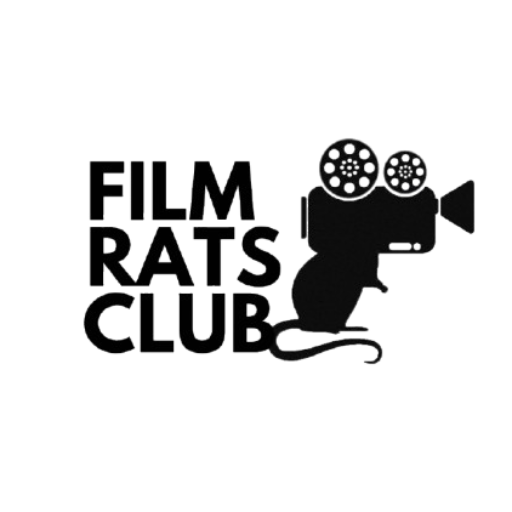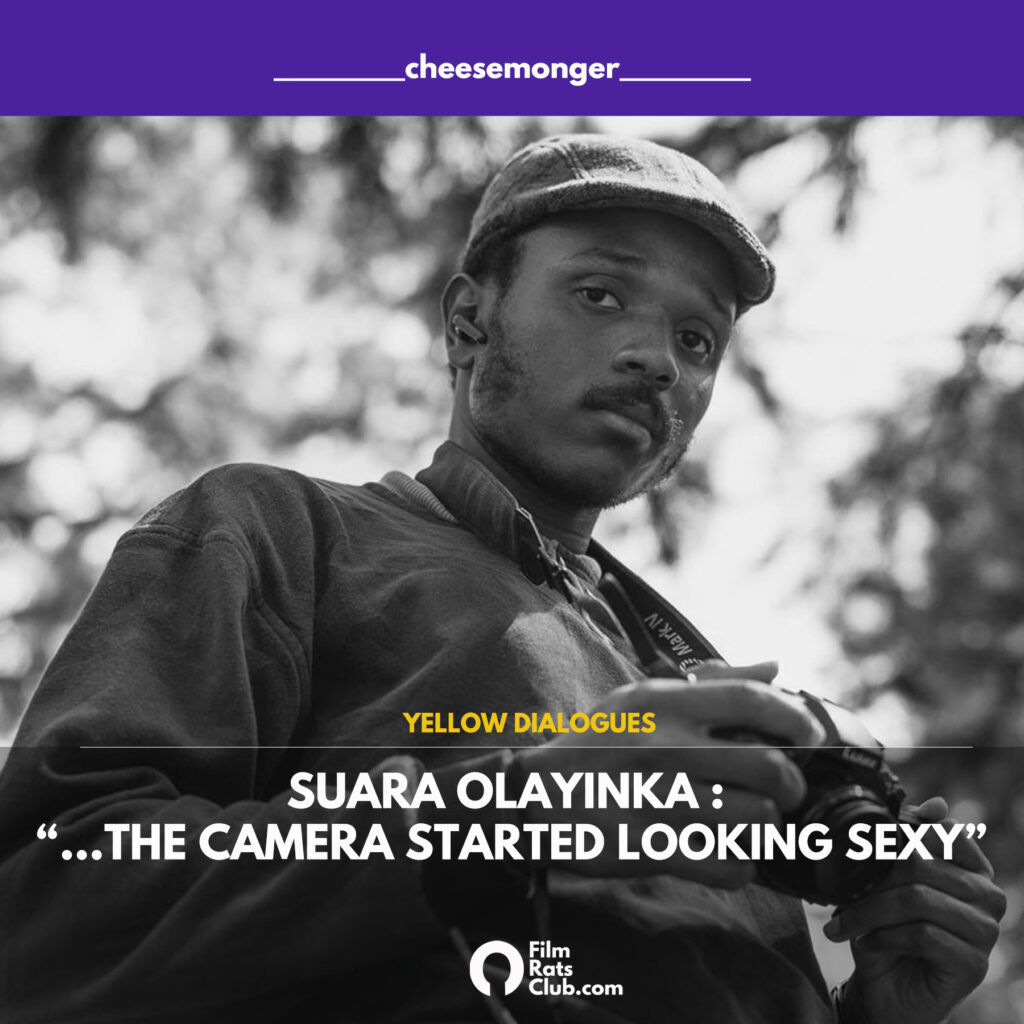SUARA OLAYINKA: “The Camera Started Looking Sexy”
The Film Rats Yellow is a community of Nigerian university students united in their love of films, whether as filmmakers or consumers. With this platform, Nigerian student filmmakers get to network, collaborate, share their wins and disappointments, learn from each other, and grow their artistic taste. Managed by both past and present students, The Film Rat Yellow is a place where Nigerian students can learn and grow, and foster a community. In the Yellow Dialogue series, the publication spotlights and taps into insightful dialogue sessions with film students who have a deep passion for cinema and storytelling and are doing something remarkable about it. This year’s first Yellow dialogue was conducted on the 21st of January 2024. Moderated by Keona, she, and other members of the Film Rats Yellow community dialogue with Olayinka Suara as they attempt to explore the mind and creative journeys of the talented cinematographer. In this interview, Suara, the 26-year-old Cinematographer, shares his thoughts, experiences, and aspirations in the world of filmmaking. A graduate of the Department of Theatre Arts, University of Ibadan, and an indigene of Ibadan, Saura started learning about film right after graduating from Oritamefa Baptist Model School. In his 8 years of experience, Olayinka has worked across various departments in film, such as art direction, welfare, props, and camera assisting. His filmography includes, ‘The Wedding Party 2,’ ‘The Wait,’ ‘A Young Time Ago,’ ‘Bad Commando,’ ‘Hallelujah,’ and ‘Jinjah.’ (Olamide’s music video) Keona: What inspired you to pursue a career in cinematography? Suara: Heartbreak. Lol. I needed to get my mind off her. So I asked a friend of mine, a music producer, to link me up with anyone in the industry. What inspired me though was the ability to change the world. My boss once said and I always like to quote: Americans knew they wanted to control the world, so they controlled the media. Keona: Hmmmm…. Change the world… How? Suara: Cos you can then control the narrative. You can promote any agenda, and you can do anything. Keona: True. The media has that huge power. Suara: Yes. That’s why you see some things more rampant. For instance, an obvious one is the LGBTQ narrative happening in almost every media. Cancel culture indirectly then supports that and others. But yeah, when you tell and show people through the immersive compulsion of audio-visual, you make them believe that black is red, and they’ll believe it. Keona: Hmmmm…. I love what inspired you to start this journey. Can you share the story of how you began your journey in cinematography? Suara: After the heartbreak, I reached out to a friend, Jakim. He is a music producer. I told him I wanted to chase my passion and act. He fixed me up with 5 potential industry people to buzz. Over a year, I tenaciously followed up on 2 of those numbers and one of them, Mike Afolarin, landed me a job in Ilesha for the movie ‘Ajuwaya.’ That’s where the camera started looking sexy. Guess who I played in ‘Ajuwaya’? Keona: Who, please? Suara: Muyiwa, the guy killed by a snake in the movie. Everyone called me Muyiwa till the shoot was over. Keona: Ahaaaa. I hope you don’t mind if I start calling you Muyiwa after this session. I’d watch the film again, this time, putting it in my mind that Olayinka Suara is in the film. Suara: No. Keona: Alright. So, were there specific challenges you faced when starting, and how did you overcome them? Suara: Not really to be honest. Starting up, I was favored enough to be under LordTanner Studios (the LordTanner & Company). So I didn’t have many challenges. I had people happy to see me grow. They readily answer my questions. I had easy access to the equipment, so practice was easy. It was fun. Keona: With the conversation we’ve had so far, it shows that you were surrounded by amazing people. It’s really beautiful. Can you highlight any key mentors or experiences that shaped your early career? Suara: Mentors – My only notable mentor was Femi Awojide. A spectacular man. He taught me a lot about light and professionalism. But I had, and still have, other people who inspired and saved my life- Lord Tanner himself, Lord Bryan, Fred, and Uncle Jamiu. Awojide was the DP for ‘Sugar Rush’, ‘Bad Commando’ by Rema the recent Tecno ad with Tiwa Savage. Keona: Wow. And when you said “saved your life”, how did they save your life? Suara: They helped me grow and push me. They made sure I was on course. And not just professionally. Keona: Oh… That’s great. In your journey, what were some pivotal moments that contributed to your growth? Suara: Pivotal Moments. I’d say the first was the first sequence I made. It was a fight sequence. I made it with so much intent. Everyone loved it. I mean, a fight sequence made in Nigeria, and looked half decent enough. ‘That’s not bad to start, you know… maybe I can do this’ But for me, most of the growth occurred with experience and my intellect. I allowed my mind to stray, reinvent itself, expand, learn, unlearn, relearn, unlearn even more, and catch that light. My mind grew wild with the influx of experiences. Keona: Your story is amazing and inspiring. Learning and growing, that’s cool. I can’t wait to see more of what you’d create next. Now, talking about growth and experience, how important is hands-on compared to formal education in cinematography? Suara: Thank you. Ahh practical ni o. I mean like anything out there that involves high-performance human activities, practical experiences always trump formal learning in my book. But I won’t lie, the theory is just as important. I’m here on a set and keep realizing that the technical know-how is enhanced with theoretical knowledge. A simple cross-setting of little things that seem insignificant changes the outcome of your entire picture. Most times, we don’t know this, just practical knowledge. There’s a lot

